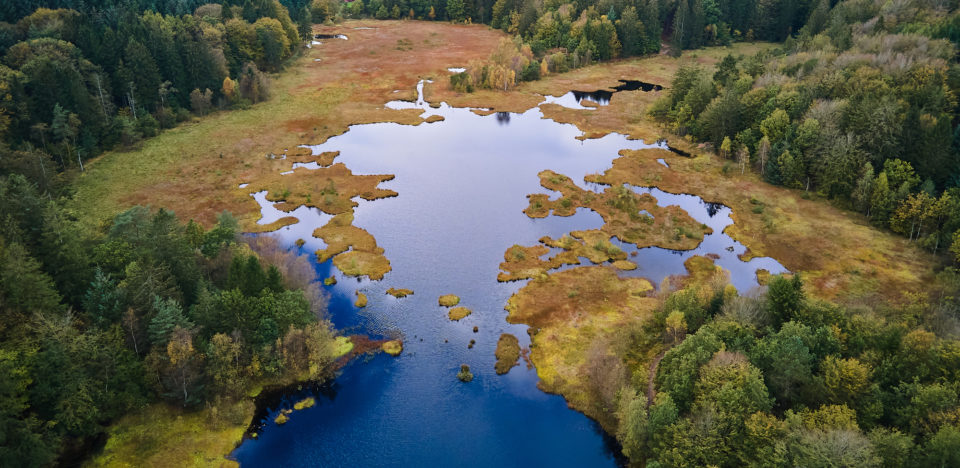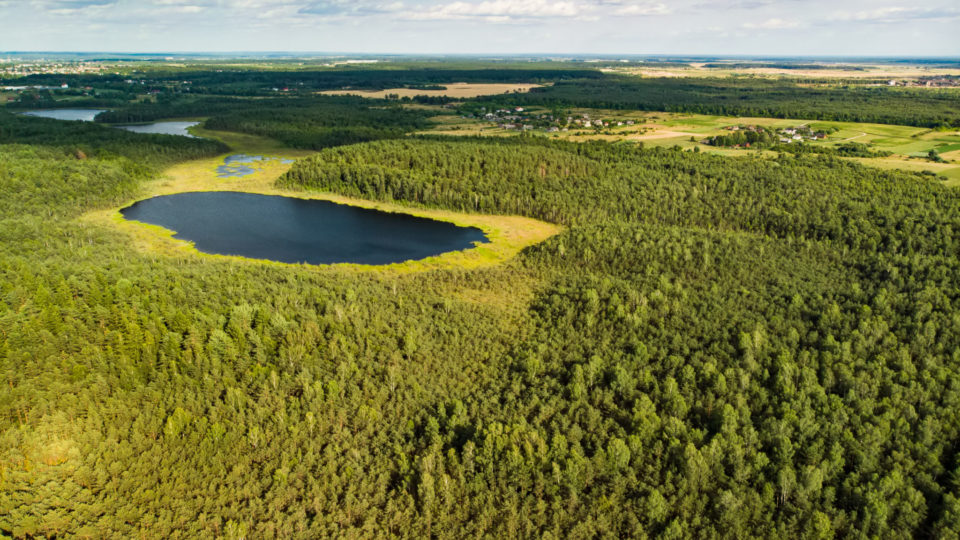To mark World Peatlands Day on 2 June, Wetlands International Europe held an online workshop celebrating peatlands and communicating their importance to representatives of EU countries. Speakers shared knowledge, science and data about peatlands, outlining the potential for different policies affecting them in Europe, and demonstrated examples of lower-impact, alternative peatland use via the economics of paludiculture, the wet agriculture on peatlands.
The online workshop aimed to celebrate peatlands and inspire action among the invited representatives of EU countries, for their conservation and restoration. Speakers provided insights into the scientific and political state-of-play on European peatlands, including their current conservation status. More than 50% of Europe’s peatlands are degraded by drainage and used for agriculture, forestry and peat extraction. This makes them one of the most degraded ecosystems in the EU.
EU countries are currently negotiating key legislative files affecting peatlands, including the Nature Restoration Law and the Soil Health Law. EU policies need to ramp up their conservation and restoration to match the ambition of the 27-country bloc’s climate and biodiversity targets. This will require re-thinking and re-imagining peat landscapes.
Wetlands International Europe’s Director, Chris Baker, opened the meeting with inspiring thoughts about peatlands, and their immense potential for climate mitigation and adaptation and water security as well as biodiversity conservation. He also reflected on their cultural value as iconic landscapes in many European countries, from the raised bogs of Ireland to the Finnish tundra. He described how perceptions in Europe are changing but that we still have a long way to go if we are to safeguard our remaining resources and reverse their loss. He called for greater attention to be given to scaling peatland restoration to help the EU in reaching its goals under the Green Deal.

A bog forming an integrated part of the landscape with surrounding forest in Denmark. Photo: iStock/Andersdahl65
Jan Peters, Managing Director of the Michael Succow Foundation, partner of the Greifswald Mire Centre and a Wetlands International Europe member, provided insights into peatland science and data, including figures on the higher carbon footprint of products originating from peatlands, clarifications about methane emissions and the “false solution” of afforestation on peatlands. Products originating from peatlands drained for agriculture have emissions four to five times higher than the same agricultural products from mineral soils, such as milk or butter. Peatland emissions make-up as much as 25% of emissions from agricultural land-use in the EU and equate to around 7% of total EU greenhouse gas emissions.
Read our Q&A on peatland restoration
Elise Vitali, Peatlands Policy Officer at Wetlands International Europe, discussed the current EU political context around peatlands. Peatlands are currently under the political spotlight, amid the heated negotiations on the EU Nature Restoration Law, the upcoming Soil Health Law, and the intertwined climate and biodiversity crises. Wetlands International calls for high ambition on the conservation, restoration and rewetting of peatlands.
She also debunked some of the arguments used against wetland restoration in the Nature Restoration Law, such as impacts on food security or the rewetting of peatlands drained for settlements (which is not included in the scope of the law and NGOs are not asking for this). The evidence shows that the peatland restoration included in the proposed law would not impact food security, as peatlands represent only 3% of total EU agricultural land and there is not a food availability issue in the EU.
Lucas Gerrits, the co-founder of ZukunftMoor, shared insights into paludiculture, agriculture on wet peatlands. ZukunftMoor is a startup promoting the rewetting of drained peatlands at scale by demonstrating paludiculture’s economic viability with an approach centred on business, agriculture and political expertise. Some 80% of drained peatlands are farmed, so paludiculture offers an economic incentive for activities wet peatland.
The paludiculture sector is developing and starting to flourish but it still needs upscaling. He detailed how sphagnum moss, which is typical of raised bogs, can be a useful substitute for peat in horticultural substrates. Global substrate demand is expected to grow fivefold by 2050, and alternatives like spaghum moss can help to close the gap. He described how policy can set the conditions to support the growth of paludiculture initiatives such as ZukunftMoor.

